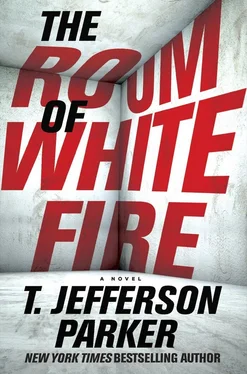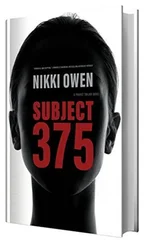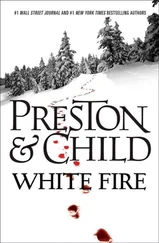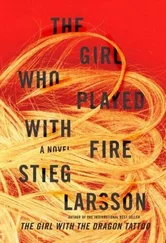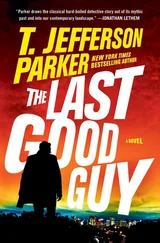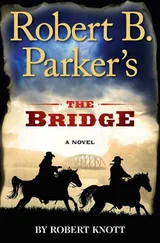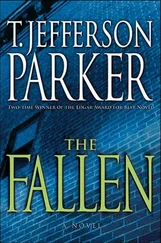She set it all on the table in front of us. Then sat down close to me and drew up her knees, letting her dress rise up her legs. I put my arm around her. She moved closer and rested her hand on the knot of my tie. She told me she saw something she liked in me that first day at Arcadia. Didn’t say what it was. Less than a week ago. She laughed. I looked at her hair falling forward and her face and the shine of the light in her eyes. Small beads of perspiration had formed above her mouth and one drop made it down her neck and into the hollow of her collarbone.
“I’m nervous,” she said.
“Me too.”
“Did you dance with Justine often?”
“Often.”
“Have you always been so angry?”
I shrugged. How to say, It’s for everything that happened to her and shouldn’t have happened, without ruining the evening?
“Do you blame yourself?”
A twinge of defensiveness. “I could have kept her on the ground.”
“Do you blame her?”
I spoke before considering, and fumbled an unhappy truth. “I’m angry at her for trying to take a few hours of pleasure without me and not coming back. Logical? No. Anger does what it will.”
“Fight it, Roland.”
“With what?”
“Forgiveness.”
She stood and picked up the remote, dropped it clatteringly to the hardwood floor, swayed unsteadily, then picked it up. Her hair fell forward around her face as she found the right buttons. The house lights dimmed while papery blinds hummed down the windows. She drained her glass and set it down and shivered. “Sorry. I need just a little more courage.”
“Am I that scary?”
“Take me to my bed. It’s thataway.”
I walked Paige to the bedroom with one of her arms over my neck like a wounded warrior. She felt heavy and drunk. I helped her off with the dress and she hit the bed, dug under the covers and curled up, knees to chest. I lay on top of the covers, close beside her, and ran my fingers through her hair. “I’m so sorry,” she whispered. “I can’t drink that. Much.”
“It’s okay, Paige.”
“Say no to anger.”
“I will.”
“But you still have to...”
“Have to what?”
“Call. Me first. When you find Clay. And testify. And make all the bad stuff. Go away.”
Before I could tell her I hadn’t agreed to either, her breathing had gone deep and fast. I touched her face, pale in the moonlight. Ran a finger along her jawline. I wanted her so bad it hurt. I listened to her breathing. Took my hand off her and sat up against the headboard. I heard the San Diego traffic far below, watched a tug pulling a Navy tender across the silver water of the bay, felt weirdly crowded by the past, even here, just two people, twenty-seven stories up in a box of brick and glass with the lights off and the nightshades down.
I found some bottled water in the refrigerator, took it back into the bedroom, and stood in the doorway for a moment. Her back was to me and she was breathing steadily. The bed-stand clock said 1:47. The bathroom night-light was on but I didn’t want to wake her. Didn’t seem like a thunderstorm could do that at this point, but...
So I crossed the living room to the other side of the penthouse and found the second bath at the end of the hall. It was good-sized, apparently set up to service two bedrooms, one on either side, with doors to each at either end of a long bathroom counter. There were twin sinks and dark blue tile. I hit the lights, splashed hot water on my face, then cold. The mirror displayed all my thirty-eight years in detailed relief — laughs and fights, highs and lows, truly a map deserved.
High on the left side of my forehead is the scar with the story behind it. Nickel-sized and Y-shaped. Faint, but in the right light it’s clear. Got it in my first professional fight — just out of the corps and invincible. Roland “Rolling Thunder” Ford versus Darien “Demolition” Dixon. Part of the undercard at Trump 29 Casino, Coachella, California, 2005. Darien was twice the fighter I was and I knew it after the first thirty seconds of the fight. He had some fun with me. Finally put me down in the ninth with a jab, a cross, and a hook. I was a sack of gravel on the canvas, but still conscious. Watching the ref looming over me, counting. Lights bright, crowd loud. I knew I could get up, beat the count, and continue. Or I could stay right where I was and call it all quits. More important, I was astonished that this could happen to invincible me. Tough guy in school. Never knocked down in a Marine Corps bout. Door-to-doors in Fallujah and never caught a bullet or stepped on an IED. People around me shot dead from hundreds of yards away, others blown to shreds with one step. Twenty-six years of victory. But laying there as the referee counted, it all came crashing down on me at once and for the first time — the fact that I was utterly, spectacularly mortal. So this is how it feels. I was suddenly thankful just to be alive.
Of course, in accord with Ford spirit and Marine training, I got up at “nine,” bounced on my toes, and glared at the ref, nodding. He took my wrists, stared into my eyes, and stepped away. “Demolition” hit me with a big right I just didn’t have the legs to get away from. Saw it coming. The next thing I remember, a ceiling of faces was staring down at me in bright, bright light. Some I knew. I remembered where I was and what had happened. They helped me to my feet, then to my stool in the corner. I sat there, watching the world around me, feeling pleasantly outside myself, childlike. State of wonder.
Hospital, seven stitches and an MRI, out in a couple of hours.
Rolling Thunder’s first defeat.
Mortality check.
Stopped fighting.
Began dancing.
I look at the scar sometimes to remind myself of that mortality. To know that sometimes it’s good not to get up before the bell. Not to let your pride carry you into the big punch that puts you down. When I’m worried or afraid, the scar heats up. When there’s something wrong that I’m not aware of, some trouble that has yet to register, the scar itches. And every once in a while — used to be once a year or so, but lately more often — I feel that same state of post-KO wonder come over me, and I’ll want to sit on a stool in my corner and just watch the world go by. I asked a neurologist about it years ago and he told me not to worry — I probably hadn’t taken enough punishment to cause chronic dementia pugilistica. That made the scar itch. Which worried me. Had another scan, but he saw nothing unusual.
Still standing in Paige Hulet’s guest bath, I checked my phone and found nothing, looked into the mirror again and shook my head.
I opened one of the bathroom’s two interior doors because that’s what I do. There was a light switch just inside. Paige’s home office greeted me: a neat desk, a computer and peripherals, stacks of magazines. I stepped in. One wall hung with framed pictures, diplomas, certificates. On the desk a row of coffee cups bristling with pens and pencils and a large desk blotter dense with scribbles and drawings. There was a smaller version of the wall-sized bookcase, no ladder needed. A brown leather task chair sat before a desktop monitor. In the far opposite corner was a red leather recliner with a reading lamp behind it. A complex-looking treadmill faced the southern window. Through that window, the Grand Hyatt reminded me of the night I’d met Justine. I looked at it for a long while.
Then went to the bookcase to read titles and authors. Most of the volumes were hardbound books on biology, medical science, psychiatry, and philosophy. French literature, poetry, and drama. No PI novels.
I sat in the task chair in front of the desk, butt low and knees high, found the chair’s vertical control, and raised the seat bottom. For some reason I thought of me moving Paige Hulet out of the strong sunlight outside Arcadia, then her moving us back into it. I wondered if the sunlight was truth, or an irresistible illusion, or simply sunlight. Wondered if she was awake in her bed and maybe missing me. Smelled her body and perfume on me and silently apologized to Justine. It wasn’t the horny foreplay that made me feel guilty, it was the reckless affection that Paige Hulet brought to me.
Читать дальше
